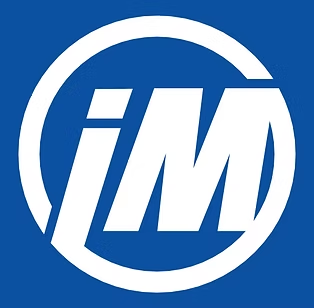
Magic
Magic is a Wallet-as-a-Service (WaaS) platform that provides developers with tools to streamline user onboarding for decentralized applications, including those built on the Hedera network. The platform's core offering is an SDK that enables seamless authentication and the instant creation of non-custodial wallets for end-users, bypassing many of the traditional complexities of Web3.
For the Hedera ecosystem, Magic allows dApp developers to offer familiar Web2 login methods, such as email or social accounts, instead of requiring users to manage seed phrases or install separate browser-extension wallets. When a user logs into a Magic-enabled Hedera dApp, a secure, Hedera-compatible wallet is automatically generated for them in the background. This wallet is fully capable of interacting with the Hedera network, allowing the user to sign transactions, manage HBAR and HTS tokens, and engage with smart contracts.
The underlying technology uses a delegated key management system, where private keys are encrypted and stored in secure hardware modules, ensuring users retain full control and ownership of their assets without the burden of direct key management.
Project Information
Related Projects
Versal is a comprehensive digital asset platform providing a suite of vertically integrated tools for businesses to build and scale payment solutions using cryptocurrency. The platform is designed to bridge traditional finance with the digital asset economy, offering modular products that enable companies to manage operations, store assets, and create modern payment flows. Its core offerings include Payments, Vault, Network, and Tokenization services.
The Versal Payments module allows businesses to easily accept and disburse digital asset payments across more than 30 blockchain networks. It provides conversion-optimized checkout experiences, invoicing solutions, and e-commerce plugins. Versal Vault is a digital asset custody solution for developers, supporting both MPC and multi-sig security methods to mass deploy and manage non-custodial wallets. The Versal Network facilitates compliant fund transfers between licensed financial entities, while Versal Tokenization allows for the creation and management of new digital assets.
As a multi-chain platform, Versal supports a wide array of networks, including Hedera. This integration means that businesses using Versal’s infrastructure can offer their customers payment and payout options using HBAR and other Hedera-based tokens.

HGraph Punks is a non-fungible token (NFT) project built on the Hedera network under developer Turtle Moon. It has been active in the HBAR NFT space since 2021. The project draws thematic inspiration from the widely recognized pixelated "Punks" style of profile picture (PFP) collectibles.
A significant feature of HGraph Punks is its point system that utilizes the Hedera Consensus Service (HCS). This system enables mainnet-auditable leaderboards, with points directly linked to the NFTs. This allows holders to earn, track, and engage in a competitive and transparent manner. The project also supports NFT staking, where users can stake their HGraph Punks to accumulate points.
HGraph Punks and its parent entity, Turtle Moon, actively contribute to the Hedera ecosystem through community endeavors and the development of open-source Hedera Consensus Service (HCS) tools. Additionally, HGraph Punks has collaborated on community-focused initiatives such as "Liftoff," presented as a virtual music venue and social environment within the Hedera ecosystem.

Cask Capital is an investment platform connecting investors with opportunities to own premium whisky casks of the highest quality as well as intrinsically related digital tokenized assets. It positions whisky casks as a tangible alternative asset class and facilitates the purchase of full or fractional ownership of these casks which are often sourced from renowned Scottish distilleries.
A core element of Cask Capital's operation is the use of tokenization utilizing the Hedera blockchain. This allows digital tokenized ownership of real-world casks and enhances transparency and accessibility in the competitive whisky investment market. Once acquired, the physical casks are held in regulated, bonded warehouses in Scotland, where the whisky matures over time. Their clear provenance, aging profile, and value growth make them ideal for fractional ownership on-chain.
Cask Capital provides services for the management and storage of these exclusive, curated assets which are fully-backed and insured. The value of the investment is tied to the maturation process and market demand for aged whisky.

IOWNME is a platform developed by IPrivata, a company focused on data privacy and digital rights. Its designed to provide individuals with a way to assert ownership and control over their personal data, particularly in the context of name, image, and likeness (NIL) rights for athletes.
The core of the IOWNME service is the platform’s Declaration Certificate, a legally-grounded digital certificate that establishes a root proof of authenticity for an individual's data. This certificate links the rights embedded in a patent to an individual's personal information, effectively transforming the enforcement of data privacy from a matter of privacy policy to one of property rights, intellectual property, and contract law. This provides a more robust and proactive framework for individuals to protect and monetize their personal brand and content.
The IOWNME platform is built on the Hedera network. IPrivata is working directly with the Hedera Foundation and Acoer, a DLT developer, to integrate the Declaration Certificate into the Hedera ecosystem.
